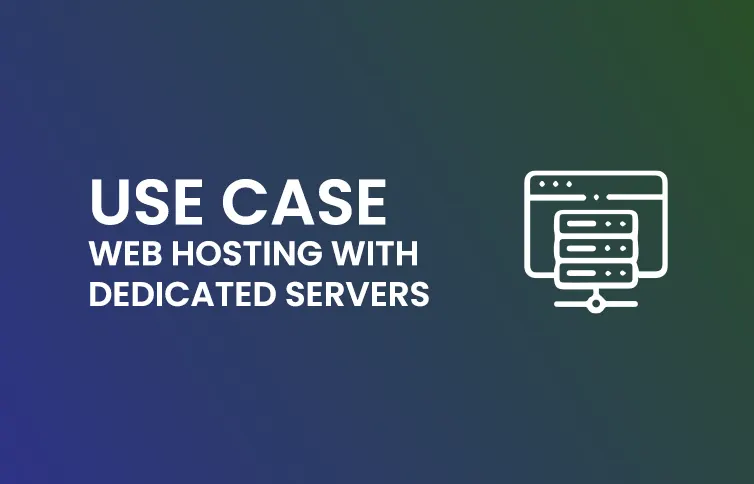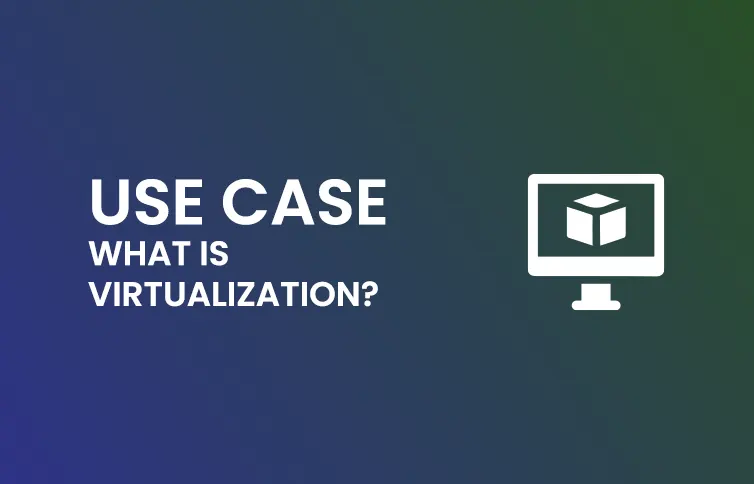Introduction: The Rise of Private Cloud Computing
In today’s fast-paced digital landscape, businesses are constantly seeking ways to optimize their IT infrastructure, enhance security, and maintain control over their data. Enter private cloud computing – a solution that’s been gaining traction among organizations of all sizes. But what exactly is a private cloud, and why has it become such a hot topic in the world of IT?
Whether you’re an IT professional, a business owner, or simply curious about the latest trends in technology, understanding private cloud computing is crucial in our increasingly digital world. In this comprehensive guide, we’ll dive deep into the world of private clouds, exploring the private cloud definition, benefits, and real-world applications.
What Is Private Cloud? Defining the Concept
At its core, a private cloud is a cloud computing environment dedicated to a single organization. Unlike public clouds, which are shared among multiple tenants, private clouds offer exclusive access and customized resources tailored to meet specific business needs.
Key Characteristics of Private Cloud
To better understand what sets private clouds apart, let’s explore their defining features:
- Dedicated Resources: In a private cloud, all computing resources are allocated solely to one organization, ensuring optimal performance and security.
- Enhanced Control: Organizations have complete control over their infrastructure, allowing for greater customization and management of resources.
- Improved Security: With a private cloud, businesses can implement stringent security measures tailored to their specific requirements.
- Scalability: Private clouds offer the flexibility to scale resources up or down based on changing business needs.
- Customization: Organizations can tailor their private cloud environment to meet specific compliance, performance, and integration requirements.
“A private cloud combines the agility of cloud computing with the control and security of on-premises infrastructure. Learn more on what is cloud computing“
Private Cloud Computing: A Deeper Dive
Now that we’ve covered the basics, let’s delve deeper into the world of private cloud computing definition and explore its various aspects.
Private Cloud Computing Infrastructure
The private cloud computing infrastructure is a crucial component of their functionality. Here are the key elements that make up a private cloud computing infrastructure:
- Hardware: This includes servers, storage devices, and networking equipment, all of which are dedicated to the organization’s private cloud.
- Virtualization: Software that allows for the creation of virtual machines, enabling efficient resource allocation and management.
- Management Software: Tools that help IT teams monitor, manage, and optimize the private cloud environment.
- Security Measures: Firewalls, encryption, and access controls to protect sensitive data and resources.
- Networking: High-speed connections to ensure seamless communication between various components of the private cloud.
Private Cloud Hosting: On-Premise vs. Off-Premise
When exploring the private cloud hosting definition, organizations often face a crucial decision: is cloud the best choice vs on-prem cloud? Understanding the differences between these options helps businesses determine the right infrastructure for their needs.
- On-Premise Private Cloud: In this model, the entire private cloud infrastructure is housed within the organization’s own data center. This approach offers maximum control over cloud computing security but it requires significant upfront investment and ongoing maintenance.
- Hosted Private Cloud: Also known as off-premise private cloud, this option involves a third-party provider hosting and managing the private cloud infrastructure in their data center. While this reduces the burden of maintenance, it may come with some trade-offs in terms of control and customization.
Examples of Private Cloud in Action
To better illustrate the concept of private cloud, let’s look at some real-world examples:

Power of Private Cloud
Explore secure, scalable, and customizable solutions with private cloud. Take control of your IT infrastructure and elevate your business operations today!
Example 1: Healthcare Provider
A large hospital network implements a private cloud to store and manage patient records securely. This allows them to comply with strict healthcare regulations while providing quick access to critical information for authorized personnel across multiple locations.
Example 2: Financial Institution
A bank uses a private cloud to host its core banking applications and customer data. This ensures high levels of security and performance while allowing the bank to scale its IT resources as needed during peak transaction periods.
Example 3: Government Agency
A government department adopts a private cloud to manage sensitive data and applications. This approach allows them to maintain strict control over their information while benefiting from the flexibility and efficiency of cloud computing.
Private Cloud vs. Public Cloud: Understanding the Differences
To fully grasp the concept of a private cloud, it’s essential to understand private cloud vs public cloud computing and how they differ. Here’s a comparison of key aspects.
- Accessibility:
- Private Cloud: Exclusive access for a single organization
- Public Cloud: Shared resources among multiple tenants
- Control:
- Private Cloud: Full control over infrastructure and resources
- Public Cloud: Limited control, managed by the cloud provider
- Customization:
- Private Cloud: Highly customizable to meet specific needs
- Public Cloud: Limited customization options
- Security:
- Private Cloud: Enhanced security measures tailored to the organization
- Public Cloud: Standard security measures shared among all users
- Cost:
- Private Cloud: Higher upfront costs but potentially lower long-term expenses
- Public Cloud: Lower initial investment but ongoing subscription fees
- Scalability:
- Private Cloud: Scalable within the limits of dedicated hardware
- Public Cloud: Virtually unlimited scalability
Benefits of Private Cloud Computing
Now that we’ve explored what private cloud is and how it compares to public cloud, let’s dive into the advantages of private cloud it offers to organizations:
1. Enhanced Security and Compliance
Private clouds provide a secure environment for sensitive data and applications. Organizations can implement stringent security measures and ensure compliance with industry-specific regulations.
2. Improved Performance
With dedicated resources, private clouds can offer better performance and reliability compared to shared public cloud environments.
3. Greater Control and Customization
Private clouds allow organizations to tailor their IT infrastructure to meet specific business needs, from hardware specifications to software configurations.
4. Cost Efficiency
While initial setup costs may be higher, private clouds can lead to long-term cost savings through improved resource utilization and reduced reliance on external providers.
5. Flexibility and Scalability
Private clouds offer the ability to quickly scale resources up or down based on changing business requirements, without the need for major hardware investments.
6. Improved Disaster Recovery
With a private cloud, organizations can implement robust disaster recovery and business continuity plans, ensuring quick recovery in case of unforeseen events.
Challenges of Implementing a Private Cloud
While private clouds offer numerous benefits, it’s important to be aware of potential challenges:
- High Initial Costs: Setting up a private cloud requires significant upfront investment in hardware, software, and expertise.
- Complexity: Implementing and managing a private cloud can be complex, requiring specialized skills and resources.
- Maintenance Overhead: Organizations are responsible for maintaining and updating their private cloud infrastructure, which can be time-consuming and costly.
- Limited Scalability: Compared to public clouds, private clouds may have limitations in terms of rapid, large-scale expansion.
- Resource Underutilization: If not properly managed, private clouds can lead to underutilized resources, reducing cost-effectiveness.
Private Cloud Storage: Securing Your Data
One of the key components of private cloud computing is storage. Private cloud storage offers several advantages:
- Data Control: Organizations maintain full control over their data, including its location and access.
- Customized Security: Implement tailored security measures to protect sensitive information.
- Compliance: Ensure data storage meets specific industry regulations and compliance requirements.
- Performance: Dedicated storage resources can provide faster access and improved performance for data-intensive applications.
- Integration: Easily integrate with existing on-premise systems and applications.
Implementing a Private Cloud Solution: Key Considerations
If you’re considering implementing a private cloud solution for your organization, here are some important factors to keep in mind:
1. Assess Your Needs
- Evaluate your current IT infrastructure and identify areas where a private cloud could bring improvements.
- Determine specific requirements for performance, security, and compliance.
- Consider future growth and scalability needs.
2. Choose the Right Model
- Decide between on-premise and hosted private cloud options based on your resources and requirements.
- Consider hybrid cloud models that combine private and public cloud elements for added flexibility.
3. Plan for Security
- Develop a comprehensive security strategy that addresses potential vulnerabilities.
- Implement robust access controls, encryption, and monitoring systems.
- Ensure compliance with relevant industry regulations.
4. Invest in Expertise
- Build or acquire the necessary skills to implement and manage your private cloud.
- Consider partnering with experienced providers or consultants for guidance and support.
5. Prepare for Migration
- Develop a detailed migration plan for moving existing applications and data to the private cloud.
- Test thoroughly before full implementation to minimize disruptions.
6. Monitor and Optimize
- Implement tools and processes for continuous monitoring and optimization of your private cloud environment.
- Regularly review and adjust resource allocation to maximize efficiency.
The Future of Private Cloud Computing
As technology continues to evolve, so does the landscape of private cloud computing. Here are some trends to watch:
- Hybrid and Multi-Cloud Approaches: Many organizations are adopting hybrid or multi-cloud strategies, combining private and public clouds for optimal flexibility and efficiency.
- Edge Computing Integration: Private clouds are increasingly being integrated with edge computing solutions to support IoT and real-time processing needs.
- AI and Machine Learning: Advanced analytics and AI capabilities are being incorporated into private cloud environments to enhance performance and automation.
- Container Technologies: The use of containers and orchestration platforms like Kubernetes is growing in private cloud deployments, offering improved portability and scalability.
- Software-Defined Infrastructure: The adoption of software-defined networking, storage, and compute resources is making private clouds more flexible and easier to manage.
Conclusion: Is Private Cloud Right for Your Organization?
Private cloud computing offers a powerful solution for organizations seeking enhanced control, security, and customization in their IT infrastructure. By providing dedicated resources and the flexibility to tailor environments to specific needs, private clouds can deliver significant benefits in terms of performance, compliance, and long-term cost efficiency.
However, implementing a private cloud solution requires careful consideration of various factors, including initial costs, expertise requirements, and ongoing maintenance. It’s essential to assess your organization’s specific needs and resources before deciding if a private cloud is the right fit.
As the technology landscape continues to evolve, private clouds are likely to play an increasingly important role in helping organizations balance the benefits of cloud computing with the need for control and security. Whether you choose a fully private cloud solution or opt for a hybrid approach, understanding the principles and potential of private cloud computing is crucial for making informed decisions about your IT infrastructure.
By carefully evaluating your options and planning your implementation strategy, you can harness the power of private cloud computing to drive innovation, improve efficiency, and secure your organization’s digital future.



